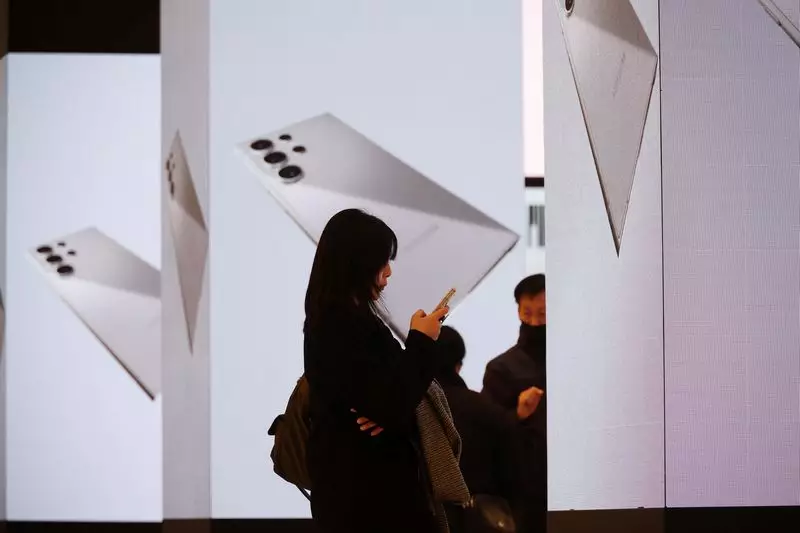Samsung Electronics has recently reported a surge in its third-quarter profits, which marks a significant increase compared to the same period last year. Specifically, the tech giant achieved an impressive operating profit of 9.2 trillion won (approximately $6.66 billion), a stark rise from the meager 2.4 trillion won recorded a year earlier. However, when examining quarter-on-quarter performance, it becomes evident that the growth trajectory is not as robust; profits decreased from 10.4 trillion won in the previous quarter. This indicates a weakening momentum that raises concerns about future profitability and market resilience.
Samsung’s recovery is further complicated by the grim outlook for its semiconductor division. While the proliferation of artificial intelligence (AI) applications offers a lucrative avenue, Samsung finds itself trailing behind competitors like TSMC and SK Hynix, who have capitalized on this trend more effectively. The South Korean company has articulated its expectation of limited earnings growth for the current quarter, primarily due to a stagnation in its “set” business, which encompasses its smartphones and home appliances. The absence of detailed explanations regarding this segment deepens the uncertainty surrounding Samsung’s prospects — indicating potential challenges in navigating a rapidly evolving market landscape.
A critical factor contributing to Samsung’s slowdown involves delays in sales of advanced chips to a notable major customer. Such delays pose a significant obstacle for the company, especially when connected with its advanced semiconductor offerings that are essential for high-performance computing and AI applications. Unlike Samsung, its competitors like TSMC and SK Hynix showcased remarkable third-quarter successes owing to robust sales in the AI sector, particularly related to supply agreements with industry heavyweight Nvidia. As AI becomes increasingly central to technology development, Samsung’s inability to provide cutting-edge chips compromises its competitive standing.
To exacerbate the situation, a surge in traditional chip supplies from Chinese rivals has further complicated Samsung’s market position. With the increased availability of standard chips, the competitive landscape has intensified, resulting in mounting pressure on price and margins. Samsung’s continued struggle in supplying high-end semiconductors at a time when other companies are thriving introduces a precarious balance that the tech giant must navigate in order to safeguard its market relevance and profitability.
Looking Ahead: A Cautious Outlook
While Samsung is observing some positive growth compared to last year, the nuances of its performance suggest a complex intersection of challenges that the company must address head-on. With the potential of artificial intelligence positioned as a focal point for growth, Samsung must act decisively to reclaim its status in the semiconductor arena. Without meaningful advancements in addressing delays and outperforming Chinese competitors, the giant may face a more prolonged struggle, jeopardizing its long-standing reputation as a leading technology innovator.

